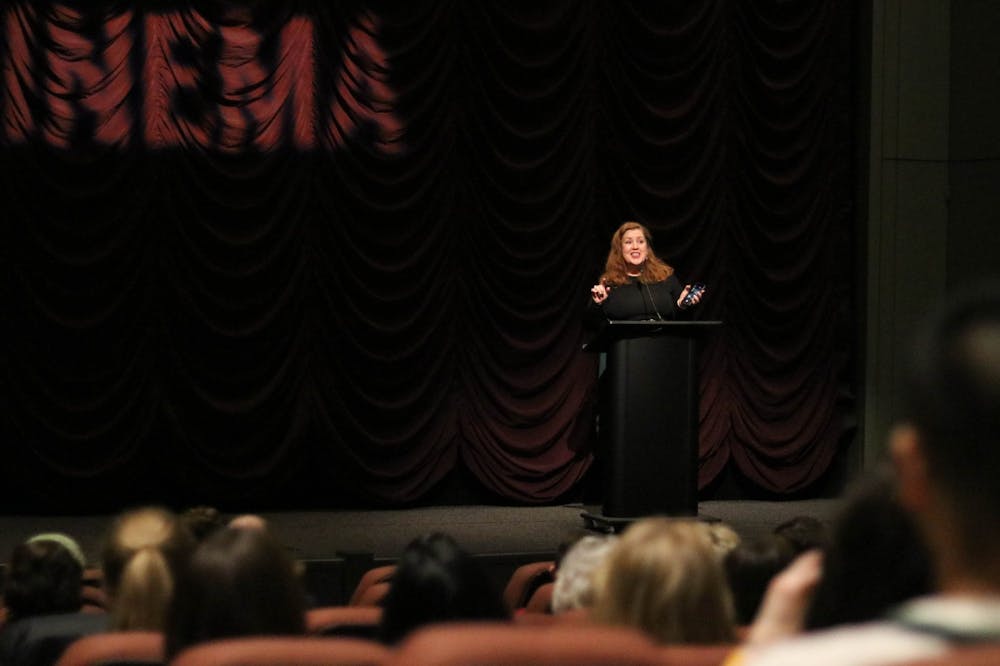Freddy McConnell, transgender man, gave birth to his first child at 30.
The IU Cinema screened “Seahorse: The Dad who Gave Birth,” a documentary that details McConnell’s nine-month journey off testosterone hormones to have a baby on Wednesday.
“Seahorse” is a name that is often used in the transgender community to refer to transgender fathers. The moniker is a reference to the fact that male seahorses are the ones that give birth, rather than the females.
Director and English filmmaker Jeanie Finlay, who hails from Nottingham, was present for a Q&A event with Justin Garcia, acting director of the Kinsey Institute, after the screening.
As the mother of a 15-year-old daughter, Finlay said she was interested in how Freddy’s pregnancy journey would be different from hers.
“I am a cisgender female in a straight relationship, but I can still be a strong ally,” Finlay said. “This was an opportunity for me to explore pregnancy.”
The film follows Freddy as he navigates doctors appointments, tracks his fertility and evolves in his relationships with friends and family. The elimination of testosterone treatments had a more profound effect on Freddy emotionally, Finlay said.
The film premiered at the Tribeca Film Festival in May 2019. From there, it moved to Australia, aired on the BBC and was screened at cinemas in the United Kingdom.
Sarah Knott, associate professor in the Department of History, said that she was inspired to bring Freddy’s story to IU’s campus when she first watched the film while on sabbatical in London.
“I was struck by how historically important the film is,” Knott said. “We don’t have many earlier representations of transgender men experiencing pregnancy and birth, so in that sense it is unprecedented.
This film presents an opportunity to tell a story of humanity and to elicit empathy, Finlay said.
“I’m interested in telling stories of shy people,” Finlay said. “The camera enables quiet voices to be amplified.”
Audience members from the IU community had different responses to the film. Mary Helen Ayres, a Bloomington-based midwife, said she always approaches film depictions of childbirth with a critical eye but that she loved the film.
“I am always interested to see how the power dynamic is treated between caregiver and patient,” Ayres said. “The person having the baby needs to be in control.”




